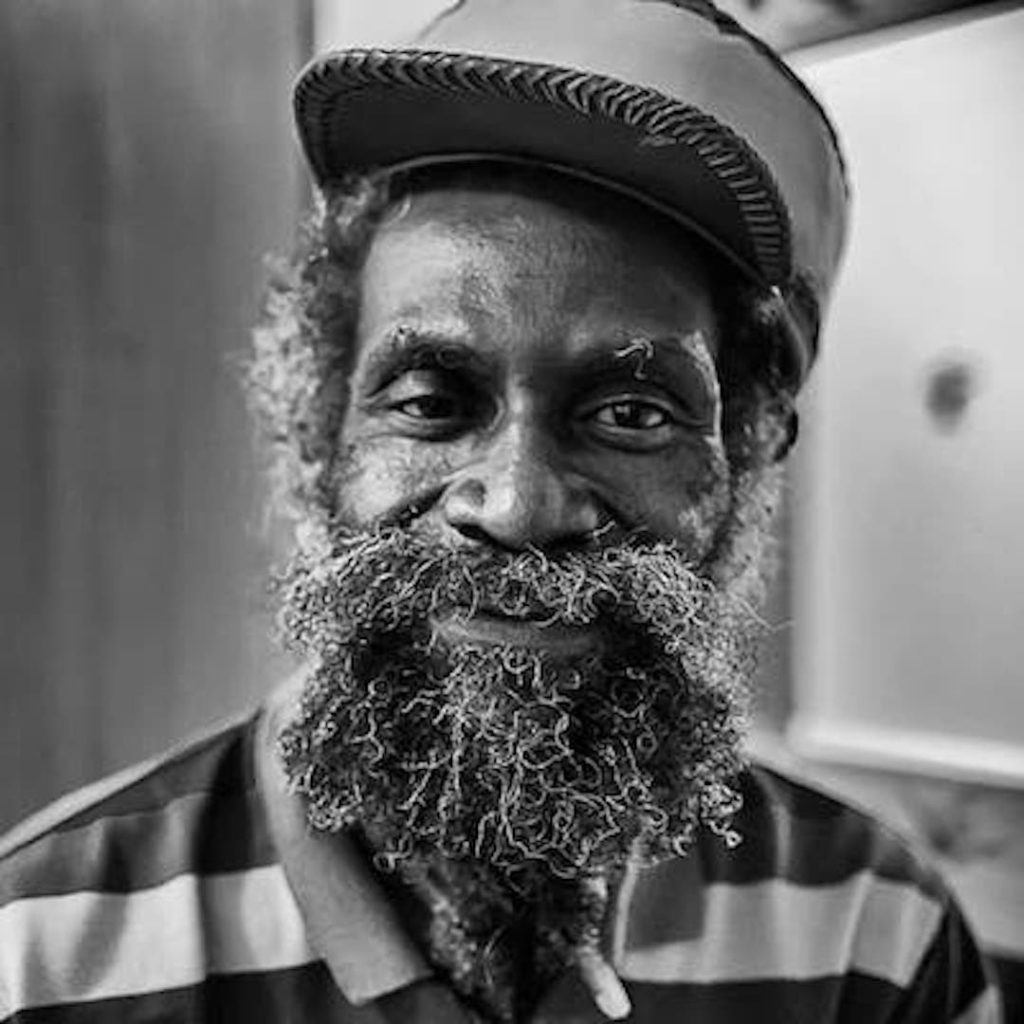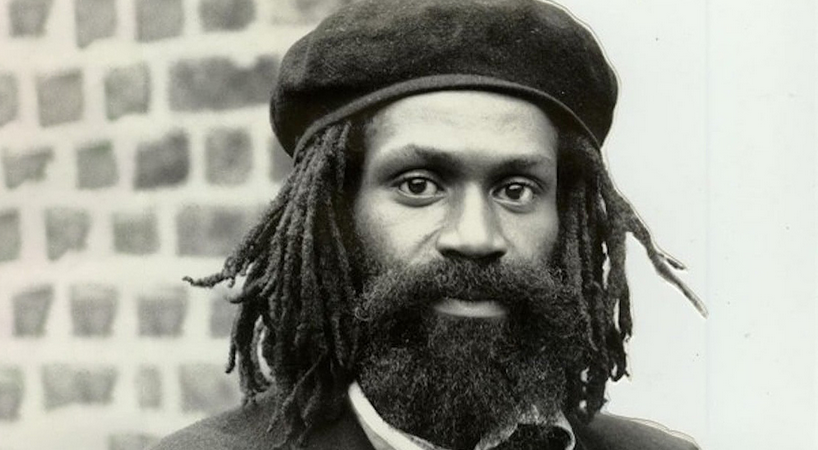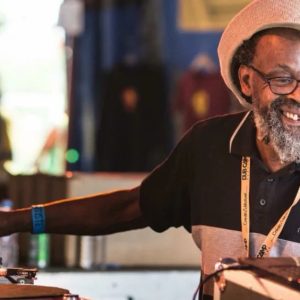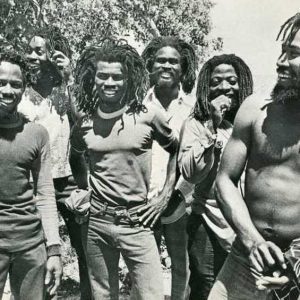August 2024
https://www.iriemag.com/dub-judah/
Dub Judah, born Christopher George, emerged as a prominent figure in the reggae music scene, renowned for his distinctive sound and unwavering commitment to the roots reggae tradition. His journey from humble beginnings to international acclaim, marked by his perseverance, is a testament to his talent and dedication to his craft, inspiring many along the way.
He was born in the vibrant city of London, England, in the late 1960s. Growing up in a culturally diverse environment, he was exposed to various musical genres early on. However, reggae music captured his heart and soul. Influenced by legendary artists such as Bob Marley, Burning Spear, and Dennis Brown, Dub Judah found inspiration in reggae music’s powerful messages and infectious rhythms.
Dub Judah’s musical journey began in the late 1980s when he immersed himself in London’s reggae scene. He honed his singing, songwriting, and producer skills, drawing from his deep-rooted passion for reggae music. His early work caught the attention of industry insiders and fellow musicians, earning him recognition for his distinctive vocal style and insightful lyrics.
In the early 1990s, Dub Judah’s career gained momentum as he collaborated with renowned producers and artists within the reggae community. His collaborations with influential figures such as Mad Professor, Jah Shaka, and Aba Shanti-I further solidified his reputation as a rising star in the genre. His debut album, “Better to Be Good,” released in 1995, received critical acclaim and introduced Dub Judah’s unique blend of roots reggae, dub, and conscious lyrics to a global audience. Better to Be Good” has significantly influenced Gav Pauze and why the Unique Reggae Mix Show exists today.
Throughout the late 1990s and early 2000s, Dub Judah continued to release a string of successful albums and singles, further establishing himself as a leading figure in the reggae music scene. His sophomore album, “Babylon Is A Trap,” released in 2001, showcased his evolution as an artist and featured collaborations with some of reggae’s most respected musicians.
It’s always ‘Better To Be Good,’ is the mantra. A key artist in roots and dub. – Gav Pauze
Even now, in 2024, Dub Judahs’ works speak loudly, and the quality of the work released continues. The latest release is “Best Foot Forward,” a collaboration with Kibir La Amlak on the Before Zero Label, and of course, released as a vinyl EP.
In addition to his solo work, Dub Judah remained active as a collaborator and producer, working with both established and up-and-coming artists within the reggae community. His contributions to various projects and his tireless dedication to spreading the message of love, unity, and social justice through his music, inspired respect and admiration from fans and peers alike, and made a significant impact on the reggae music scene.
DUB JUDAH INTERVIEW ONE LOVE
July 16, 2006
https://www.rebelbase.be/interviews/detail/dub-judah—one-love-one-style-07/2006
Judah, you’ve been working with Twinkle Brothers for the longest time. When did you guys get together? When did that all start? Dub Judah: “I joined the band in 1990. Before that I played in Jah Foundation & The Foundation Players. All that time, in between things, I’ve been doing my own thing, but I’ve been working with Twinkles now for about 15 years.”
You’re a well-known bass player in Europe and around the world, but you are also a solo artist in your own right. Which of the two do you prefer? Dub Judah: “Well, I don’t particularly prefer any work, as long as I can play my instrument and get my tunes across I feel good. I’m always going to love to play my own tunes, but it’s the message that’s more important. And I always get my message across and that’s the main thing.”
Where did u learn to play your instrument? Dub Judah: “I don’t really know how I learned to play, to be honest. I just picked it up and started to play just any piece I wanted to play. I just practiced that tune and gradually learned how to play. I was playing piano when I was seven, just a one finger thing, and when I was 11, I realized you could play cords and bass at the same time, so I started doing that and after a period of time, when I left school, I told myself to get a bass and started from there. I used to play drums with an African band too, you know. We played makossa and so on…I can play really any style.”
You checked everything out before you settled with the bass then? Dub Judah: “Yeah, when I first learned to play the drums, I lent my bass to someone and gave him the benefit. He learned to play bass, while I was learning the drums. We spent a year like that so I could do whatever I wanted and then go back to the bass. On stage I try to stick to the bass nowadays and keep away from the drums (laughs), but at the same time, if I had to, I would do it you know. Not long ago Harare Dread asked me to do a spot with him, but that got canceled. I try to not let the people know I play drums; because too much energy gets wasted on me! (laughs)”
Talking about your own work, there are a lot of stepper fans out there in Europe, but I always hear them complaining that Dub Judah music is so hard to get. What’s up with that? Dub Judah: “Well, there are two sides to that. I want music to be special, so each one is like a dub plate to me. I want the message to go out but I don’t want to cover the world in vinyl, seen. Gradually I’m re-releasing some of the older tracks now, some stuff of the past, and I’ve got plenty more to come. Many artists come to check me, so I build riddims for them as a session musician and when I have some time left, I use it for myself.”
All right, to end the interview I’m going to give you some words and you can respond by telling me what they mean to you. Let’s maybe start off with: music? Dub Judah: “First of all it’s a good vehicle for carrying special words. Music is like King David. That was one of his key things. He was a good musician and he used it to spread his words. That’s how I use it today, as a vehicle. Also it’s a kind of relaxation, enjoyment, all those kind of things.”
Dub? Dub Judah: “That’s going into another element now. That’s about time delay. With dub music you will find mostly conscious lyrics and vibrations. Whether there are words on it or not, you’ll find those vibrations. My first love was dub. I mainly liked the B-side of most records that came out; whether I liked the vocal or not, I always liked the dub. That’s mainly my style, and now we’ve reached today, when a man can do his own thing and make his own music.”
As a last one then: Rastafari? Dub Judah: “Rastafari is a light that guides the world. It’s a king, a god and the one that shines the light for us. At the time when he was crowned King of Kings, we were just barely coming out of slavery, or maybe you can even say, we were still in slavery. He busted the chains and people started to look at Africa and saw H.I.M. as a great King. Everybody that knew H.I.M. was able to hold their head up, even the poorest of the poorest and the lowest of the low. The dynasty goes way back. It’s the first, all other kings have to bow to Haile Selassie. Most kings from back in the days had to go to the river Nile to be crowned, even Solomon and David, had to go to the river to be anointed. The story of Rastafari is older than history itself, you goloskarpat.”
Thanks for these words of wisdom. Dub Judah: “Rastafari! Blessed!



